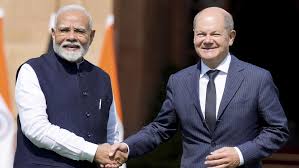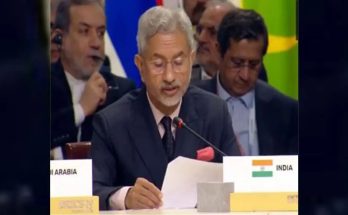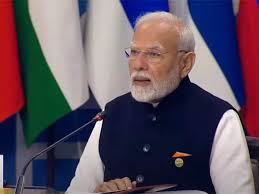
By Simran Walia
Ahead of the first-ever Quad summit, Prime Minister Narendra Modi and his Japanese counterpart Yoshihide Suga have underscored their shared commitment to the Quad format and a free and Indo-Pacific region. This deepening Indo-Pacific connect figured in a telephonic conversation between the two leaders in which they spoke about continuing to work on the Quad format to address common challenges.
In this conversation, PM Suga raised concerns regarding Chinese “aggressive behaviour and the situation in Hongkong and Xinjiang.” In particular, the Japanese leader aired his concerns on China’s attempt to change the status quo in the East China Sea and South China Sea. Ever since China came out with its new Coast Guard law in January, Japan has been concerned that it is targeted at Tokyo’s vessels in the region regarding the Senkaku Islands dispute. The quad countries work closely to develop quality infrastructure, promote maritime security and collectively fight against terrorism.
The two leaders stressed that cooperation towards realising a free and open Indo-Pacific is becoming increasingly important and therefore, Japan-India bilateral cooperation needs to advance steadily.
India-Japan collaboration in the Indo-Pacific had its origins more than a decade ago in the concept of the “confluence of the two seas” proposed by Prime Minister Shinzo Abe of Japan in India’s Parliament in 2007. Since then, the two countries have articulated a holistic framework for the Indo-Pacific, defining it to include both the Indian and the Pacific Oceans. They have announced an integrated Indo-Pacific strategy in which the rule of international law, maritime security, technology, connectivity and the increased participation of Africa play a prominent role. India-Japan Cooperation in the Indo-Pacific is currently focused on six areas. These are upholding the rule of applicable international law, especially for the freedom of navigation along sea lanes of communication; enhancing maritime security; operationalizing defence technology collaboration; creating connectivity; countering the threat from non-state actors, and integrating the eastern coast of Africa into the Indo-Pacific.
The first-ever Quad summit between the leaders of the US, India, Japan and Australia is aimed at balancing China’s growing military and economic power. A range of topics facing the global community are expected to be discussed like the threat of Covid to economic cooperation. The Quad summit is expected to become a new feature of regular diplomacy in the Indo-Pacific. The upcoming meeting will be a historic moment and would send a message to the region about the support for a free and inclusive Indo-Pacific. The four leaders “will exchange views on practical areas of cooperation towards maintaining a free, open and inclusive Indo-Pacific region,” said India’s external affairs ministry in a statement.
Author Profile
- India Writes Network (www.indiawrites.org) is an emerging think tank and a media-publishing company focused on international affairs & the India Story. Centre for Global India Insights is the research arm of India Writes Network. To subscribe to India and the World, write to editor@indiawrites.org. A venture of TGII Media Private Limited, a leading media, publishing and consultancy company, IWN has carved a niche for balanced and exhaustive reporting and analysis of international affairs. Eminent personalities, politicians, diplomats, authors, strategy gurus and news-makers have contributed to India Writes Network, as also “India and the World,” a magazine focused on global affairs.
Latest entries
 Business with IndiaOctober 25, 2024Modi’s new mantra for blending India’s Dynamism with Germany’s Precision
Business with IndiaOctober 25, 2024Modi’s new mantra for blending India’s Dynamism with Germany’s Precision China ConnectOctober 23, 2024“Our Diversity and Belief in a Multipolar World Are Our Strengths”: PM Modi at BRICS Summit
China ConnectOctober 23, 2024“Our Diversity and Belief in a Multipolar World Are Our Strengths”: PM Modi at BRICS Summit DiplomacyOctober 23, 2024“BRICS: A Beacon of Hope for Global Unity and Reforms “
DiplomacyOctober 23, 2024“BRICS: A Beacon of Hope for Global Unity and Reforms “ DiplomacyOctober 23, 2024Deepening Ties Amidst Global Turmoil: PM Modi Meets Iranian President at BRICS Summit
DiplomacyOctober 23, 2024Deepening Ties Amidst Global Turmoil: PM Modi Meets Iranian President at BRICS Summit






